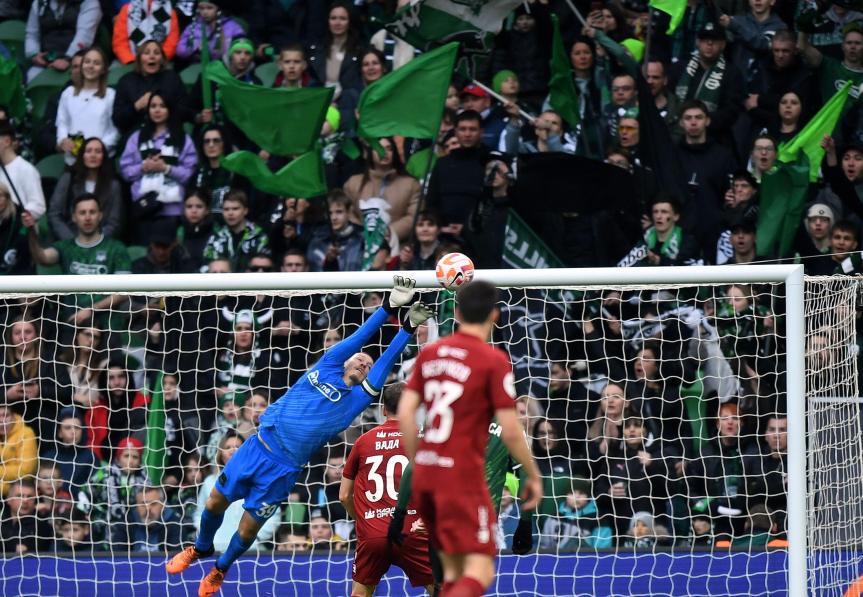RUSSIAN football has become a pariah; the country’s clubs and its national team are banned by UEFA/FIFA, foreign players have gone home or have joined clubs outside of Russia and nobody is paying too much attention to what’s going on. While Russia continues its onslaught on Ukraine, football seems irrelevant and frivolous.
Russian football has not been in a good place for a while, and the current situation can only make things worse in the long-term. Zenit St. Petersburg, the club owned by Gazprom, have won the Premier League for the past five years and they are currently top of the table. Zenit Saint-Petersburg remain the best supported club with an average gate of 29,000 with second-placed Krasnodar enjoying crowds of 23,000. These two sides meet on April 13 with just one point separating them.
The game could well become a shoot-out between the two best strikers in the league at the moment – Zenit’s Mateo Cassiera is the top scorer with 15 goals and behind him is Krasnodar’s Jhon Córdoba with 11. They are both Colombian internationals. Córdoba is attracting the attention of clubs around Europe although he is 31 years old.
Zenit’s squad comprises players from Kazakhstan, Serbia, Colombia, Brazil and France, as well as its Russian contingent. If the world was remotely stable, Zenit could have the potential to become a European force, but that now seems a long, way off. There was a time when they could attract top players, but only the most mercenary would try their luck in Russian football today. Saint-Petersburg is a one club city that has a population of 5.6 million, so they have a massive audience to call upon.
Krasnodar are the only major club in Russia not to be owned in some shape or form by a state entity. The club was founded in 2008 by oligarch Sergey Galitsky, the co-owner of Russia’s largest retailer with a net worth of around US$ 3.5 billion. Not all club owners are as responsible as Galitsky, even though his club has a reputation for hiring and firing coaches. Krasnodar sacked Vladimir Ivić in March and brought in old favourite Murad Musayev.
Krasnodar could make good money on their 23 year-old playmaker, Eduard Spertsyan, who is on the wanted list of a number of clubs. The Armenian is under contract until 2026 and is said to be valued at around € 18 million. The club’s Russian international goalkeeper, Matvey Safonov, has also caught the eye of clubs in western Europe but is on a longer-term deal through to 2029.
There have been some quite eccentric characters running clubs in Russia. For example, potash magnate Suleiman Kerimov bought FC Anzhi Makhachkala in 2011 and tried to make them into a major power by buying big name players. But he made a significant mistake in ending his relationship with the Belarusian company that fixed potash prices and this resulted in Kerimov cutting the club’s budget dramatically.
The centre of power in Russian football is currently in Saint-Petersburg and will probably remain so for some time. Ironically, Vladimir Putin is from Saint-Petersburg (Leningrad). Moscow may be awash with clubs and in the current Premier, there are four (CSKA, Spartak, Dynamo and Lokomotiv), but the last team from the capital to be crowned champions were Lokomotiv in 2018. Spartak won the title in 2017 and CSKA have not won since 2016. You have to go back to 1976 for Dynamo’s last victory.
This year, it is likely that it’s either Zenit or Krasnodar who will win the crown. All eyes will be on the Krasnodar stadium on April 6 for what is a vital game. While Zenit will be favourites to win a sixth consecutive title, they may get pushed to the final day of the season this year.

